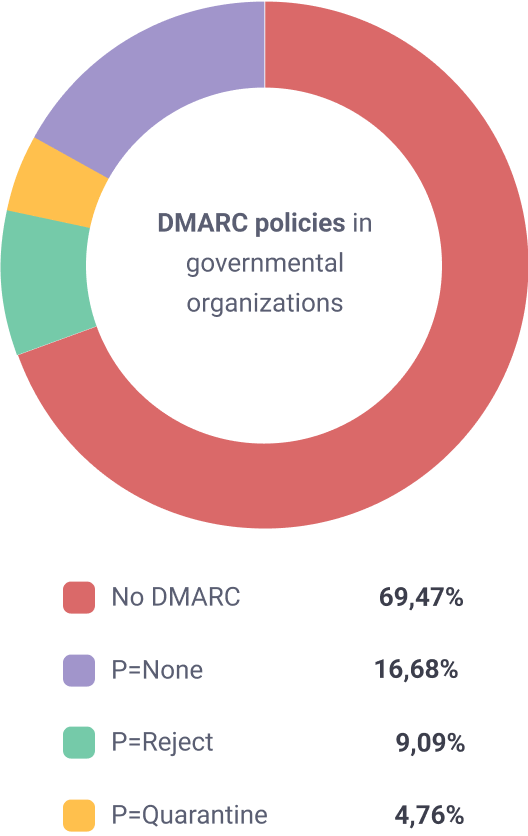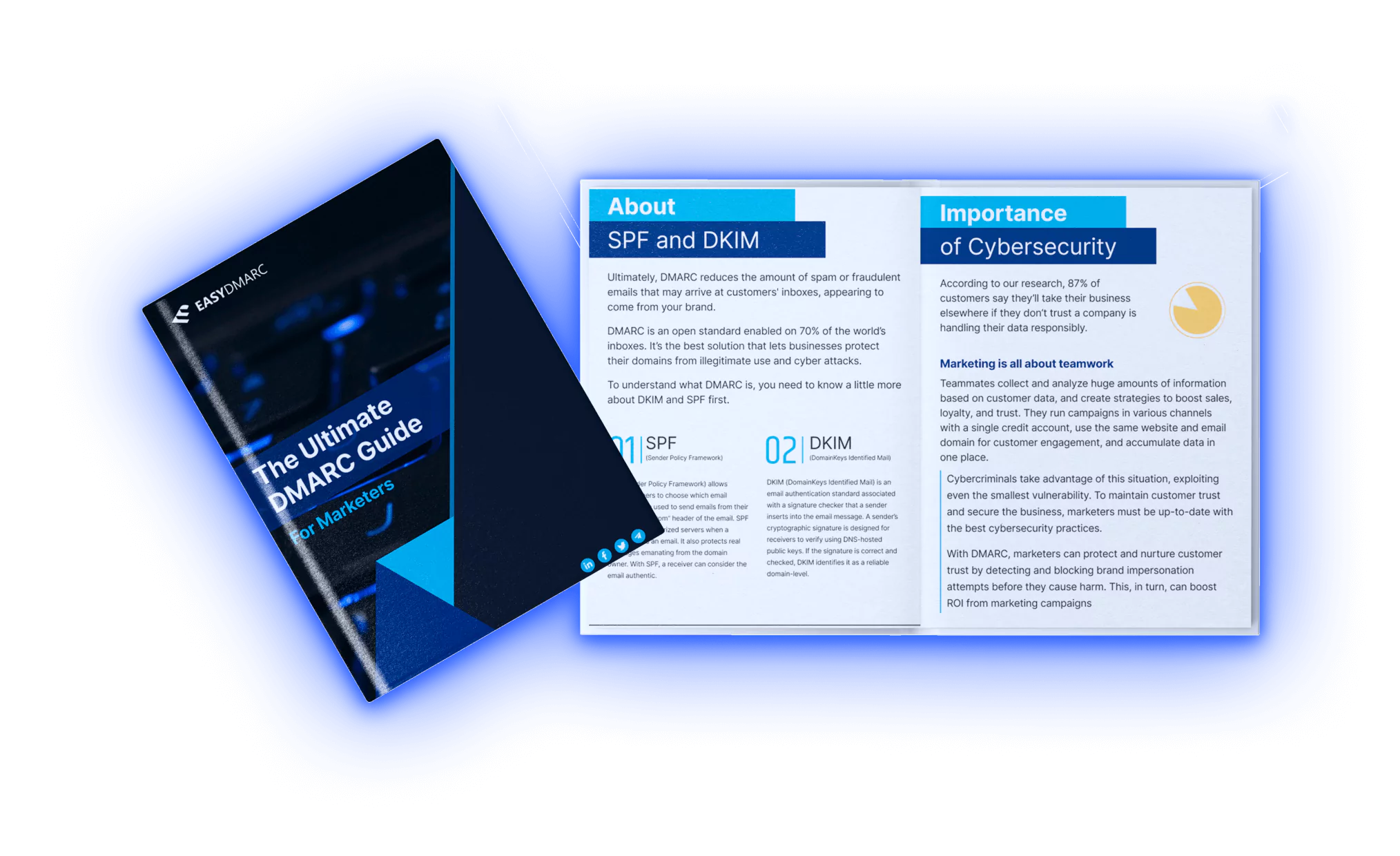Government Email Security Solutions
Protect your communities from malicious
email impersonation and phishing attacks.

Government Domains and DMARC
Countries, states, and local governments worldwide use email to communicate with citizens, employees, and each other.
Cybercriminals target government and federal domains using malicious email impersonation, ransomware, and phishing attacks for espionage, financial gain, and to steal classified information. The best way to secure a domain against phishing attacks is to implement a strict DMARC (Domain-based Message Authentication, Reporting, and Conformance) policy.
Countries around the world have made DMARC implementation mandatory or recommended for their national government organizations, including:
United States of America
In 2017, the Department of Homeland Security mandated that all federal government domains establish a strict DMARC reject policy within a year.
Australia
Guidelines for email mitigation strategies recommend that all organizations (not just government ones) establish a DMARC policy set to p=reject.
The United Kingdom
From 2016, UK government domains were mandated to have a p=reject DMARC policy. Since March 2025, however, the UK’s National Cyber Security Centre no longer provides aggregate reports for Mail Check, leaving government email inboxes unmonitored.
Ireland
Since November 2022, all public sector organizations must implement TLS, SPF, DKIM, and enforce DMARC on all inbound emails.
The Netherlands
The Standardization Forum mandated that Dutch government organizations implement a DMARC reject policy by the end of 2019.
Canada
The Government of Canada's Chief Information Officer has mandated the use of SPF, DKIM, and DMARC to verify the identity of all email senders.
Denmark
From March 2023, a p=reject DMARC policy is mandatory for all governmental agency domains.
Germany
Since June 2018, internet service providers have been advised to take action against malware and spam, including implementing SPF, DKIM, and DMARC.
New Zealand
Updated in September 2022, the requirements for DMARC control compliance and DKIM control compliance were elevated from a "should" to a "must," and the DMARC policy setting was changed from p=none to p=reject.
Saudi Arabia
Since December 2019, national organizations have been required to implement all necessary measures for analyzing and filtering email messages using recommended email protection methods that include DKIM, SPF, and DMARC.
We Partner With Trusted Resellers
At EasyDMARC, we make it easy for government organizations to access our DMARC solutions by working through trusted resellers and partners. We know many public sector departments have specific procurement processes or prefer to buy from pre-approved vendors. That’s why we partner with resellers who can help simplify purchasing, handle local requirements, and ensure a smooth onboarding experience, without adding extra steps for your team.
DMARC Statistics on Government Organizations
Our research on more than 7,500 government domains worldwide showed that only 30.5 % of them use DMARC. And only 46.3% of these have the strongest DMARC reject policy.

How DMARC Helps
Prevent Email Spoofing
DMARC helps prevent email spoofing by verifying that emails sent from a domain are actually authorized by the domain owner. For government organizations, this means blocking cybercriminals from sending fraudulent messages that appear to come from official addresses. This helps to protect their citizens from phishing attacks, data breaches, and financial fraud.
By enforcing a p=reject DMARC policy, public sector organizations can close off a common attack vector and strengthen overall trust in their communications.
Why Choose EasyDMARC
EasyDMARC makes it simple to deploy the DMARC protocol with a user-friendly platform, while also providing a powerful solution for domain monitoring and clear visibility into your email infrastructure.
Reliable
Trusted by over 175,000 domains, we deliver robust, scalable solutions designed to meet the demands of government organizations.
Easy to Manage
Our smart dashboards and simplified reporting keep your email authentication on track, so you spend less time troubleshooting.
Risk-Free
We offer peace of mind and world-class support, 24 hours a day, seven days a week.
Fast
Our streamlined DMARC implementation ensures a rapid transition from monitoring to full enforcement.
Getting Started With DMARC: A Guide For Government Organization
93% of successful cyberattacks worldwide begin with a phishing email. As these types of tactics continue to evolve, attacks on countries, states, local governments, and federal agencies increase.
With EasyDMARC’s email security solution, you can stop fraudulent and compromised accounts from being used to send malicious messages to exploit people in your state or local government organization.
Download our free ebook to learn about the importance of DMARC for government organizations and how you can protect your employees and citizens from phishing attacks.
Download To Read